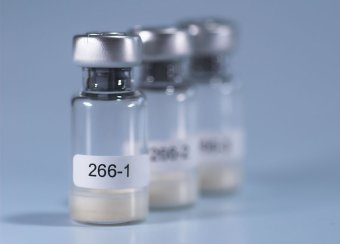
General information – description of the schemes
The National Food Agency of Sweden is organising two different schemes of microbiological proficiency testing: one for drinking water analyses and one for food analyses. The two schemes are administered and run mostly together and are elaborated as similarly as possible.
Quality assurance
The PT activities are accredited since December 2004, currently according to EN ISO/IEC 17043, and are regularly audited by Swedac (the Swedish accreditation body). For both schemes, there are external advisory groups with representatives from the Nordic countries.
Testing material
Both schemes are based on the use of freeze-dried sub-samples (0.5ml) of mixtures of relevant microorganisms, which are sealed in small glass vials. Together with instructions, 2-4 vials containing different microbial mixtures are sent to the participating laboratories some weeks ahead of a testing round. The freeze-dried content in a vial has to be reconstituted in a specified volume of an appropriate diluent before analyses. The reconstituted samples are then considered as simulated drinking water or food samples.

Confidentiality
All registered laboratories get a confidential laboratory number (identity code) and password, to log into the participant pages on the website.
Reports and Information
A week after the last results reporting date the participants can compare their results with the general outcome and preliminary statistics on the website. After processing and evaluation of the results, a more comprehensive report is written containing tables, graphs and discussions and where the results can be compared with those from other laboratories. This final report is available as a pdf-document on the public website of the National Food Agency and [link: Reports] and on a page for participants of this website.
Most of the information from the organiser to the participants is given on this website. At occasions alerts can also be sent by email.
A more detailed general description of the scheme activities is given in: